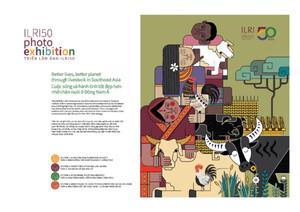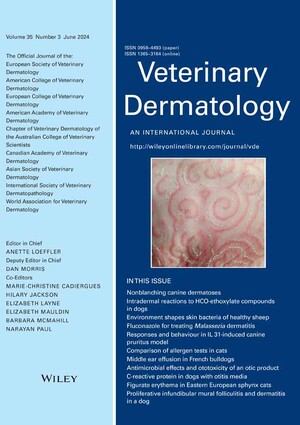
Silica vesicles increase stability of Salmonella-specific phages isolated from chicken in environments mimicking the gastrointestinal tract
Abstract
Non-typhoidal Salmonella (NTS) enterica serovar Enteritidis is one of the major causes of foodborne infections worldwide. This NTS serovar is mainly transmitted to humans through poultry products. Bacteriophages (phages) are a promising alternative to antibiotics to reduce NTS incidences in poultry farms. The ability to survive the harsh environment encountered in the chicken gastrointestinal tract (GIT), such as low pH, high temperature and enzymatic digestion, can be valuable in selecting phages with high therapeutic potential. In this study, we characterized 13 newly isolated Kenyan S. Enteritidis-specific phages for their ability to survive in pH-adjusted media, different temperatures, and simulated gastric and intestinal fluids (SGF and SIF, respectively). Furthermore, we evaluated the possibility of using silica vesicles (SV) to increase the stability of these phages in these environments. All phages were relatively stable from pH 4 to 12 and from 25℃ to 42℃ following 12 hours of incubation. At pH 3, phages lost up to 3 logs in viral titres after three hours of incubation. They remained more stable at pH 9, with phage titres 2 logs higher than at pH 3. In SGF, they were stable for 20 minutes; afterwards, they started losing their viability up to 5 logs, while they were relatively stable in SIF for up to two hours. Moreover, significant differences were observed among the different phages in surviving these environments. Encapsulating phages with SV demonstrated a slow but long rate of phage release upon adsorption for 96 hours. Preliminary data indicate that SV 140 C18 can protect phages longer than other silica vesicles tested. In contrast, free phages in SGF had an average reduction of 7 logs PFU/ml after 60 minutes of incubation. These data suggest that a number of these phages can potentially survive through the chicken GIT and that SV can be an ideal technology to prolong the stability of phages in acidic environments.
Citation
Mhone, A.L., Makumi, A., Odaba, J., Guantai, L., Ngugi, C.W., Akhwale, J.K., Lacasta, A., Moineau, S. and Svitek, N. 2022. Silica vesicles increase stability of Salmonella-specific phages isolated from chicken in environments mimicking the gastrointestinal tract. Poster presented at the 2022 Viruses of Microbes Congress, Guimarães, Portugal, 18–22 July 2022. Nairobi, Kenya: ILRI.










